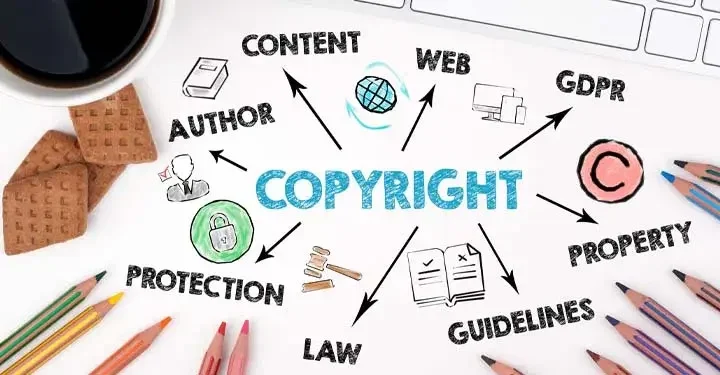Creators of all stripes have long relied on copyright to protect their creative works from exploitation by infringers, but these protections are not absolute. The limitations of copyright can include the duration, fair use, resale rights, and more.

With an earlier precedent in English law and enshrined in Article I, Section 8 of the U.S. Constitution ("To promote the Progress of Science and useful Arts, by securing for limited Times to Authors and Inventors the exclusive Right to their respective Writings and Discoveries"), copyright law allows creators a limited monopoly from which to profit from their work, thus providing an incentive for creativity.
Copyright defined
Copyright law in the United States protects "original works of authorship" by granting several exclusive rights to the owner of the copyright.
Generally, copyright protection under American law protects the copyright holder for the duration of the life of the author plus 70 years. For works made for hire where the employer owns the copyright, the copyright duration is generally either 95 years from the date of its first publication or 120 years from its creation, whichever expires first.
'Fixing' the creative work
An idea not sufficiently "fixed"—made into a tangible medium—is not eligible for copyright protection. Also, your creative work must have sufficient heft for copyright protection to apply. Short phrases or snippets of creative work might not qualify for copyright protection (although, in the right circumstances, they may be eligible for trademark protection).
Registration and the right to damages
While it is true that copyright protection takes hold whenever a creative work is fixed in tangible form, registering a copyright with the U.S. Copyright Office can provide the copyright owner with the ability to collect damages and attorney's fees in federal court.
Limitations of copyright protection
While the protections afforded under copyright law are powerful, there are some limitations to that protection, including the following.
First sale doctrine
An exception to the distribution rights of copyright owners, the "First Sale" doctrine states that copyright owners lose distribution rights to any specific medium containing the copyrighted work once that medium was first sold. Thus, authors do not collect royalties on, for example, used books.
Digital millennium copyright act
Say you are the author of a registered copyright and you discover your work being reproduced in an online forum. As the copyright owner, you may have recourse against the individual member of the forum, but against the forum itself? Not so fast. The Digital Millennium Copyright Act of 1998, or DMCA, provides for a "Notice and Takedown" procedure where the copyright owner provides notice to the online service provider of an infringement, allowing the provider some time to investigate and take down the infringing work.
So long as the online service provider follows the DMCA procedure, that forum is shielded from copyright liability even though that forum did publish a copyrighted work. Also, the functioning of the internet depends on cached files; that is, files that are copied and stored on the computer or the network. Although such copying would technically be a violation of copyright law, the Digital Millennium Copyright Act protects such use.
Fair use
Perhaps the most prominent defense in any copyright action is fair use, which can be seen as a "transformative" use of the copyright holder's work for the public interest. What it is that constitutes "transformative" versus something intended to exploit your rightful copyright rights is something courts have grappled with for centuries. A court would weigh, in a very fact-specific manner, the amount of the copyrighted work used, the purpose of the use, whether the usage damages marketability of the copyrighted work, and the standards of the industry in question. There are several avenues on which a fair use defense can be asserted, including:
- Commentary. You may have created a work garnering praise or criticism. Such commentary on your work might require using a portion of your work, and, so long as that portion is limited to commentary and not intended as a means to exploit your work, such commentary could be considered fair use.
- Parody, but not necessarily satire. These concepts are often confused, but the difference can be important for copyright purposes. Parody is a kind of commentary on the copyrighted work, while satire often uses the copyrighted work to make a social comment not directly related to the copyrighted work. Courts often find parody to be a fair use of copyrighted work, but not as often for satire.
Copyright protection is a powerful deterrent from unlawful exploitation of your created work. Understanding its limitations will help you determine when and if to pursue action against those who use your copyrighted work for their own purposes.

